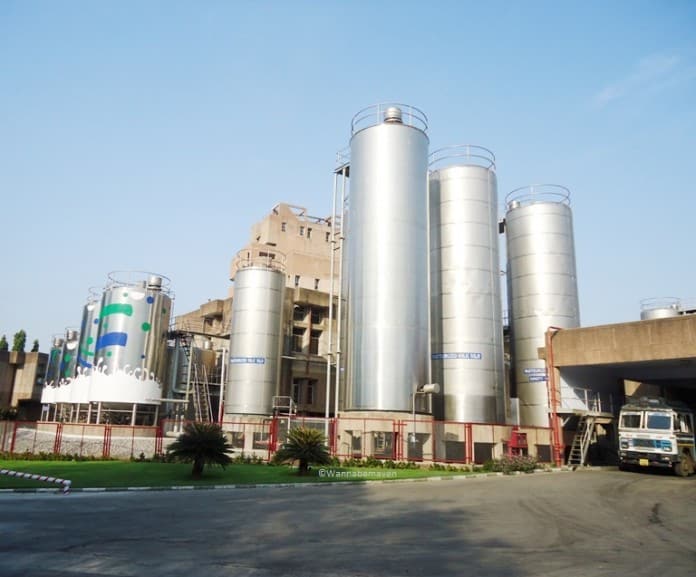The Kaira District Co-operative Milk Producers Union Limited popularly known as Amul Dairy has become the first in India’s food industry to start a fully automated bio-CNG generation and bottling plant to utilize energy from its plant’s waste.
Earlier, the dairy union used to flare the biogas into the atmosphere by burning it. While burning raw biogas some elements like carbon dioxide and hydrogen sulphide used to get released into atmosphere harming the environment.
But a few months back as part of its green initiative, Amul decided to reutilize the biogas and adopted medium pressure swing adsorption (MPSA) technology to convert biogas into bio-CNG. Amul Dairy’s managing director Dr K Rathnam said, “We are the first in the dairy sector as also the food industry of the country to design, install and commission such a technology along with our Ahmedabad-based technical partner Atmos Power Private Limited.”
For every litre of milk that is processed at the dairy, one litre water (two million litre a day) is used for chemical cleaning of plant and machinery. This water has residual milk solids which earlier emitted 2,500 cubic metre of methane per day with 60 to 65 % purity. Now, the raw biogas
from digesters is first collected in double membrane raw biogas balloon having capacity 1,000 cubic metre.From raw biogas balloon, it is transferred for purification where it is passed through various phases like de-sulphuriser to remove sulphur, energizer for heat exchange, inter cooler for chilling of gas, moisture separator for separation of moisture, energizer again for heat exchange and dryer to absorb moisture.
MPSA tower is used for further purification and then passed to surge tank for storage of purified bio-CNG having more 93 percent of methane content. From surge tank, it is transferred and stored into another double membrane purified biogas balloon having capacity 1000 cubic metre. Finally, it is compressed and filled into cylinders for use. Rathnam explained that purified biogas is as good as CNG having more than 93 percent of methane content and that they have started using the purified biogas at their Mogar food complex.
The co-operative has invested Rs 1.75 crore for implementing this technology. “After deducting our investment, we are saving Rs 25 per cubic metre of gas which is a saving of Rs 12 lakh per month,” he said, adding that the payback period is less than two years and in the process, they were helping protect environment.






























